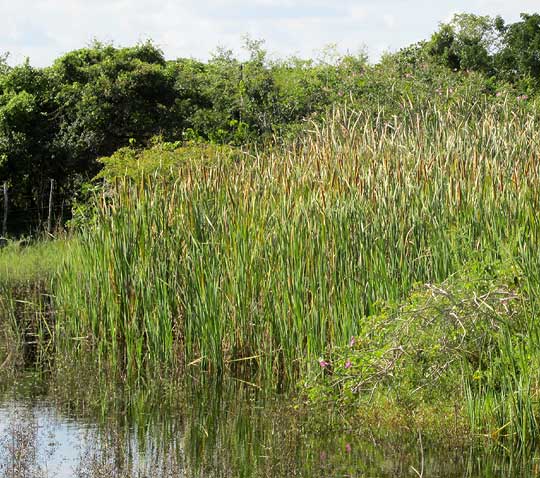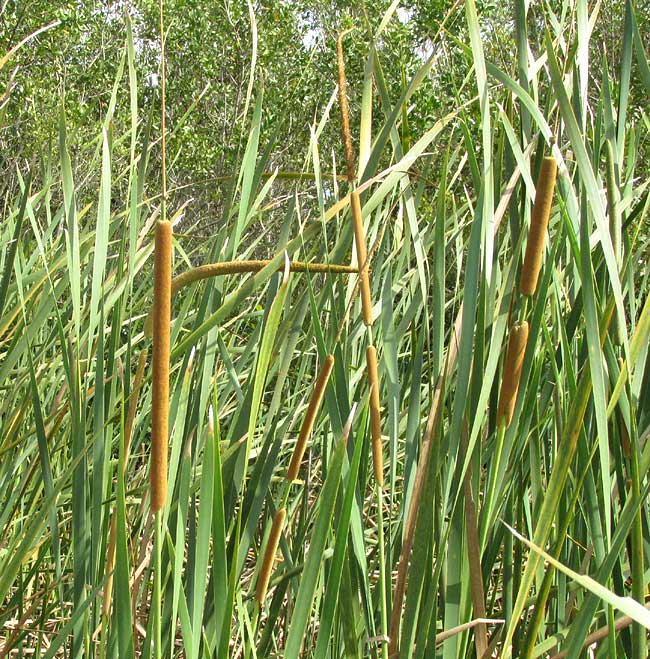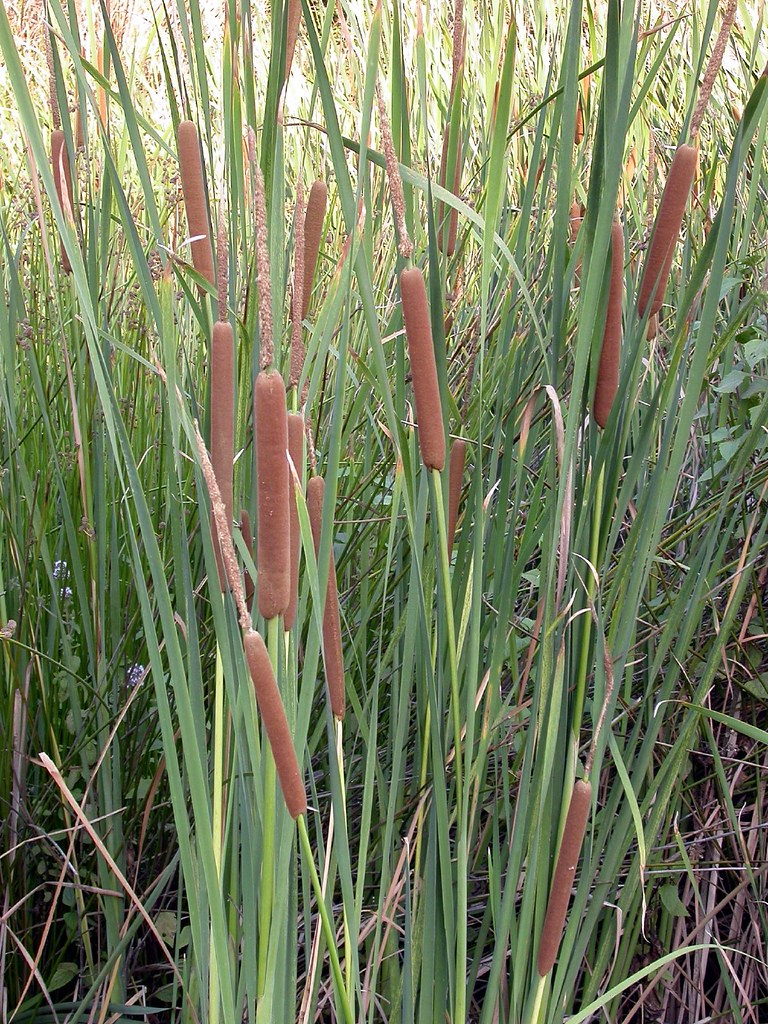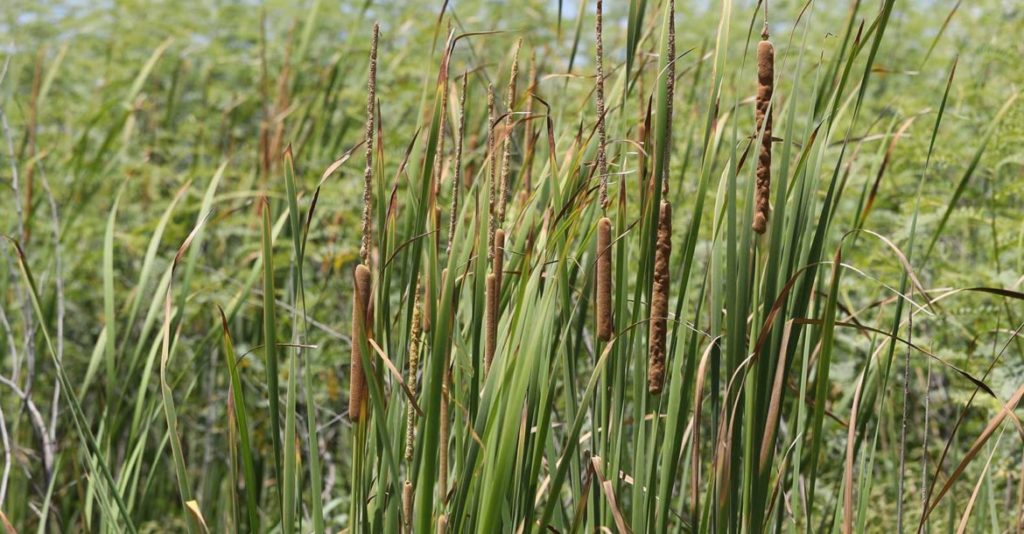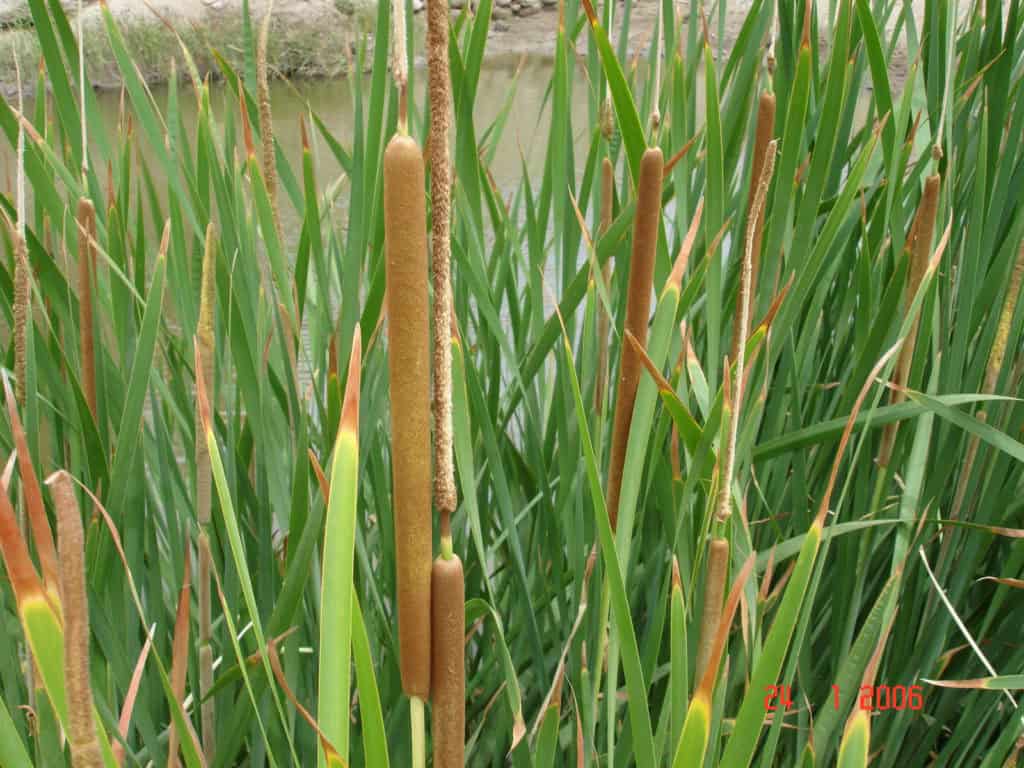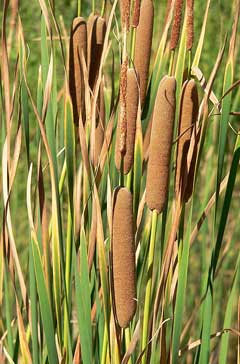Narrowleaf Cumbungi
weed identification
This species of cumbungi has green to yellowish-green strap-like leaves that reach upright, they can grow between 2 – 5.5 metres tall. The plant is easily identifiable by its dense brown, cylindrical spikes that can resemble a cat’s tail. The plants growth can be described as very vigorous in wet areas.
It commonly grows along edges of water bodies in slow-moving water.
It reproduces vegetatively via underground stems whose buds develop new roots and shoots. It also reproduces by seeds.
Pollen requires strong winds for dispersal. The plant spreads through underground stems (rhizomes) and seeds are spread in water.
It can help stabilise banks and prevent erosion.
What does Narrowleaf Cumbungi look like?
Disadvantages of Narrowleaf Cumbungi
Narrowleaf cumbungi grows prolifically and if not contained its growth can negatively impact a water body.
- Potential to dominant water bodies and displace other native water plants
- Prevents regeneration of more desirable plants
- Reduces critical food and habitat for fish and other aquatic animals
- Potential to obstruct water flow and block pumps
- Restrict water-based recreation
treatment
AQ200 Aquatic Herbicide + Wetting Agent – Chemical Herbicide designed to kill emergent weeds quickly. Use on mild to severe infestations.
Aquatic Weed Rake and Razor Combo – DIY physical removal. Ideal for mild infestations, sensitive water bodies or to aid herbicide treatment.
Aquatic Harvesting – Large amphibious machine that cuts and clears emergent aquatic weeds. Book this service for severe infestations or for larger water bodies.
prevention options
Aerating Fountains – Reduces the severity and likelihood of aquatic weed infestations. Use in any body of water.


